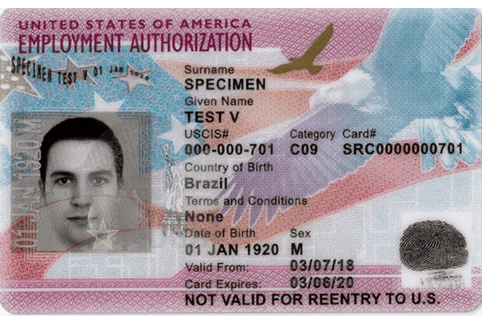This information is for people in the U.S. If you are not in the U.S., find international help.
阿富汗身份类别
Afghan evacuees could have humanitarian parole, a Special Immigrant Visa (SIV), asylum, or refugee status. Most Afghan evacuees will need to file additional paperwork to get legal status that allows them to stay in the USA permanently.
You can apply for more than one immigration status at the same time. Filing an application for asylum at the same time as your SIV application will not slow down the process. Afghans are encouraged to apply for permanent status as soon as possible.
- Find official guidance in USCIS Information for Afghan Nationals.
It is important to seek legal advice from an immigration lawyer or accredited representative. You can also find help with the Afghan Coalition, the Afghan Association of Central Virginia, and Afghan Evac.
人道主义假释犯
If you are a humanitarian parolee not eligible for the SIV program, your status is temporary. It lasts for up to 2 years. You can apply for re-parole to temporarily extend your protection while you apply for a different status.
Parolees can not get a Green Card. You must be approved for a different status to get lawful permanent residence. The best option for Afghan parolees may be to apply for asylum.
如果阿富汗假释人员的再许可、政治庇护或其他身份调整申请待批,即使您当前的假释期结束,他们仍可获得福利。
If you received a notice stating your parole is ending and you must leave the U.S., it may not be correct if you entered via OAW (but could be valid if you entered via CBP One). If you are affected, talk to an immigration lawyer as soon as possible.
再许可 流程
如果您通过 "欢迎盟友行动"(OAW)获得了人道主义假释,您可以申请重新许可。 这些申请将根据具体情况予以考虑。
如果您的申请被接受,您可以继续在美国合法生活和工作两年。 您仍有资格享受 ORR 服务。 美国政府可能不允许获得假释的人再次申请再许可。
如果您符合以下条件,则无需申请重新假释
- meet the criteria for automatic consideration of re-parole
- 有未决的政治庇护申请或身份调整申请
- 在您的初始假释期满前申请政治庇护或 AOS
要申请重新许可,您必须填写并提交经修订的I-131 表。 您可以通过在线或邮寄的方式进行申请。 I-131 表将同时申请再许可和工作许可延期。 无需其他表格。
You will have to pay a $1,000 fee unless you qualify for an exception. The U.S. government will notify you and provide instructions on how to pay this fee if you are approved for parole. Do not pay this $1,000 fee when you submit Form I-131.
申请再许可的提示:
- 查看您的 EAD 卡,确保信息与您在表格上填写的一致。 这包括您姓名的拼写、出生日期和 外国人登记号码哦(A-number)。
- 在线申报可以帮助您避免常见错误。 如果您选择在线申请,则需要一个myUSCIS 账户。
- 尽快提交申请,这样您就不会面临身份空白的风险,也不会失去获得福利和服务的机会。
- 即使您正在申请其他身份,如政治庇护,您也可以申请 "再许可"。
- 查看需要准备的 文件清单,包括您的 EAD 和 I-94 复印件。 (名单另有دری/ 达里语和پښتو/ 普什图语版本)
- 查看这些常见问题
If you change your address, you must notify USCIS within 10 days, even if you are moving to a temporary location. Use the USCIS Change of Address form.
特别移民签证 (SIV)
You can apply for an SIV if you were employed by the U.S. government, a U.S. contractor, or ISAF in Afghanistan for at least one year. Once you have a Chief of Mission Approval Letter (and, if required, an approved I-360 SIV), you can apply for a Green Card with Form I-485. You may have to attend an interview at your local USCIS office. You may be asked questions related to your status.
- There is no fee to apply for a Green Card for Afghan SIVs with USCIS. You must pay a fee when filing in Immigration Court.
政治庇护
If you were forced to leave Afghanistan to escape persecution and you do not have SIV or refugee status, you may be eligible for asylum. Applying for asylum is a long process, but it offers a pathway to legally stay in the U.S. permanently.
You typically must file your application within one year of arrival in the USA. You may be eligible to apply after one year if you apply before your parole expires. Learn how to apply for asylum.
Once you are approved for asylum, you will be eligible for certain benefits. You can apply for your Green Card one year after your asylum case is approved. You must be physically present in the U.S. for at least one year to apply. You may have to answer questions about your status.

了解如何从值得信赖的移民律师和法律代表那里寻求免费或低成本的帮助。
难民
如果您以难民身份进入美国,您可以在抵达美国一年后申请绿卡。 您的安置机构可以帮助您寻找法律帮助来完成这项申请。
临时保护身份(TPS)
TPS Afghanistan ended on July 21, 2025. You can no longer apply for or renew TPS Afghanistan.
Some Afghans have been detained by ICE during routine check-ins or court visits. Always carry proof of your immigration status and any pending case.
Green card
Many Afghans, including refugees, asylees, SIVs, and their families, can apply for a Green Card after waiting a certain amount of time. A Green Card allows you to live and work in the USA permanently.
工作许可证
You can apply for a work permit or an Employment Authorization Document (EAD) if you have a qualifying status. This includes refugees, asylees, temporary protected status, and parole.
旅行许可证
持有 TPS 的人可获得旅行许可证。 这就是所谓的提前假释。 它向移民官员表明,您可以出国旅行并返回美国。
您可以填写I-131 表申请旅行许可。 在申请旅行许可时,请遵循《联邦公报》的通知说明。
在美国境外旅行之前,请咨询律师。 移民规则可能会发生变化,因此了解旅行是否安全非常重要。
There is a full travel ban for people from Afghanistan. This means you are not allowed to enter the U.S. unless you qualify for an exception, such as qualifying for a Special Immigrant Visa or refugee status. The ban is currently being applied to the family reunification of asylees, but a court case may change this.
与家人团聚
You can apply for your spouse and unmarried children under 21 to come to the USA. There is no fee to apply for Form I-730.
Public benefits and ORR services
The U.S. government offers public benefits for essential services, including food, housing, healthcare, and education. You may be eligible for public benefits based on your immigration status and state rules.
Many lawful immigrants, including refugees, asylees, trafficking survivors, and TPS holders, may no longer get certain public benefits – even if they used to qualify. These policies will go into effect on different dates.
Office of Refugee Resettlement (ORR) services help refugees, asylees, SIV holders, and other new immigrants pay for basic needs as they settle in the United States.
由于特朗普政府的政策,一些 ORR 福利和服务已停止或发生变化。重新安置合作机构已恢复有限服务,帮助新抵达的难民和阿富汗 SIV 人员。
从USAHello获得更多信息
寻找特定信息?
本页信息来自 DHS, USCIS, IRAP, CLINIC, MPI, 和其他可信来源。 我们的目标是提供简单易懂、定期更新的信息。 本信息并非法律建议。




